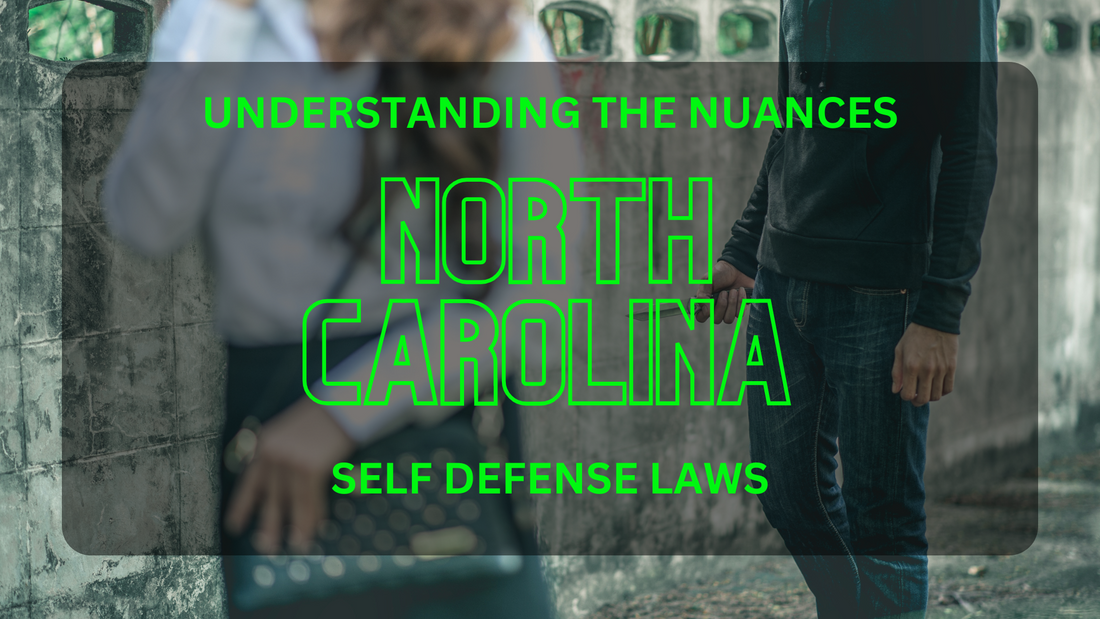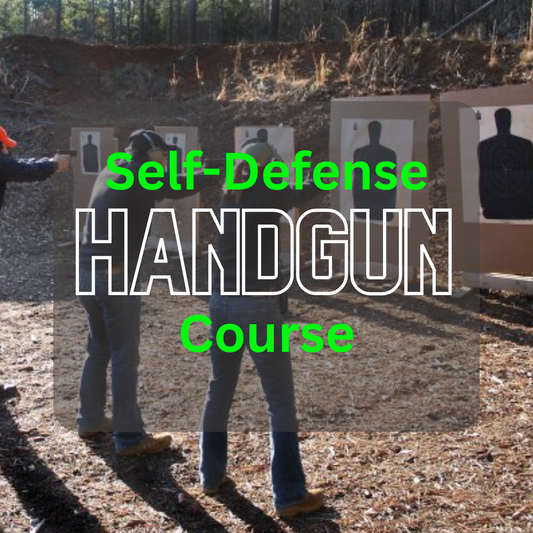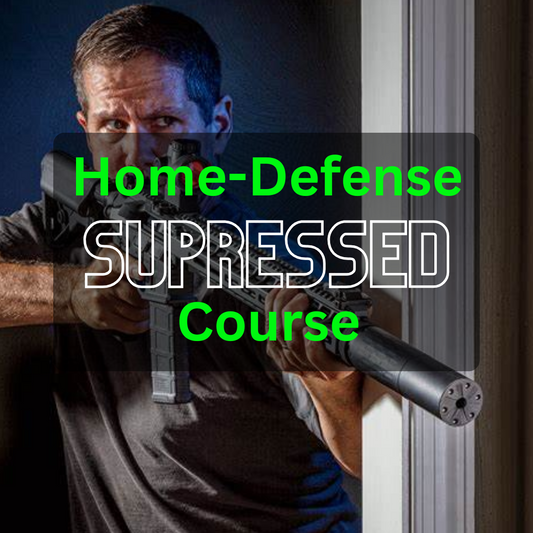
In North Carolina, the rights and limits surrounding the use of self-defense are governed by nuanced laws that empower individuals to protect themselves under imminent threat. The statutes are designed with specific conditions that justify the use of force, distinguishing between non-deadly and deadly force. This blog article delves into the intricacies of North Carolina’s self-defense laws—unpacking key legal terms, conditions under which force is justified, and the critical distinctions that can determine the outcome of a self-defense claim. Understanding these laws is essential for navigating potential legal implications in self-defense scenarios, ensuring citizens know their rights while adhering to the bounds of the law in protecting themselves and others.
Key Self-Defense Laws in North Carolina
The foundation of self-defense laws in North Carolina is largely built upon N.C.G.S. § 14‑51.3, which meticulously outlines the conditions under which individuals are justified in using non-deadly and deadly force against another. To unfold the complexities of this statute and the concepts it embodies, here's a closer look at its essential elements and related terms crucial for understanding North Carolina's legal stance on self-defense.
Overview of § 14‑51.3 and the Scope of Legal Force

Navigating through N.C.G.S. § 14‑51.3 reveals that the law distinctly differentiates between non-deadly and deadly force, setting up frameworks under which each may be legally applied in self-defense scenarios. At its core, it authorizes the use of non-deadly force when an individual reasonably believes such action is necessary to protect themselves or others from an aggressor's imminent use of unlawful force. Intriguingly, it clearly stipulates that one is justified in employing deadly force, with no duty to retreat, if they are in a place where they have the right to be and believe such force is essential to prevent imminent death, great bodily harm, or under the circumstances permitted by N.C.G.S. 14‑51.2. Read more at our Blog
Let's first outline the keywords and their definitions.
Imminent Harm
Imminent harm refers to the immediate, apparent danger that threatens physical injury or death to an individual. The perception of harm must be based on concrete circumstances rather than speculative fears, making the threat current and actionable under the law.
Great Bodily Harm
Great bodily harm is a level above simple injury, indicating severe, significant injuries that threaten life or limb or cause permanent disfigurement or disability. The law recognizes the right to defend oneself against actions that could result in such grave injuries, allowing for the use of deadly force when faced with the risk of great bodily harm.
Sexual Assault
The North Carolina Pattern Jury Instructions (NCPI Crim.308.70.F.N.1) include definitions pertinent to sexual assault, identifying it as an attack of a sexual nature that puts an individual at immediate risk of enduring significant physical or psychological harm. In instances of sexual assault, the law supports the use of force commensurate with the perceived threat to prevent the assault from occurring.
- Rape
- Forcible Sex Offenses
- Sexual assaults. This category would include inappropriate touching as an example

Excessive Force
Excessive force denotes employing a level of force beyond what is reasonably necessary to ensure self-defense or the defense of others based on the circumstances. The use of force must be proportionate to the threat encountered; excessive force can lead to legal liability and the loss of protection under self-defense laws.
Aggressor
The aggressor in a self-defense scenario is the individual who initiates or provokes violence. The aggressor loses the inherent claim to self-defense unless specific conditions are met, as outlined in § 14-51.4. An aggressor cannot claim self-defense if they are actively engaging in or attempting to commit a felony or if they initially provoke the use of force against themselves except under certain circumstances of withdrawal and clear communication of intent to disengage.
By delving into the nuances of these key terms and provisions under North Carolina law, individuals can better understand the legal protections available when faced with threats to their safety or the safety of others. It's crucial, however, for residents to remember that self-defense claims are highly dependent on the specific facts of each case and that the principles of reasonableness and proportionality are always at play when determining the legality of force used in defensive situations.

When is Force Justified?
In North Carolina, the justification for using force in self-defense hinges on several key conditions. Understanding these conditions is paramount to ensuring one's actions remain within the bounds of the law.
Understanding the Conditions
The right to use force in self-defense is justified under North Carolina law when four critical elements are present:
- Imminent Threat: You must honestly believe that you or another person is in immediate danger of death or great bodily harm.
- Reasonableness: A reasonable person in the same situation would concur with your threat assessment.
- Non-Instigation: You did not provoke or initiate the confrontation, leading to the use of force.
- Proportionality: The force employed was not unreasonable or excessive relative to the threat faced.
Distinctions Between Non-Deadly and Deadly Force
Non-deadly force refers to actions intended to deter or restrain without inflicting serious bodily harm or death. Deadly force, by contrast, is used with the intent of causing significant bodily harm or death as a means of protection. The justification for using deadly force is far more stringent, requiring an imminent and severe threat.
Legal Right to Defend: Knowing Your Grounds

No Duty to Retreat
North Carolina adheres to the "Stand Your Ground" principle, meaning you have no obligation to retreat from an aggressor before using force in places where you have a legal right to be. This principle applies whether you're at home, in your workplace, or any other location where your presence is lawful.
Reasonable Belief in Threat
The law recognizes the right to defend oneself or a third party when there's a reasonable belief of an imminent threat. This includes scenarios where intervention is necessary to prevent a forcible felony, such as sexual assault or great bodily harm, against oneself or others.
Immunity from Liability
North Carolina law provides certain immunities from civil or criminal liability for individuals acting in self-defense, assuming their actions align with the legal stipulations for justified use of force. This means that if you legally defend yourself or another, you're generally protected from lawsuits and criminal charges related to that act of defense.
Exceptions
However, this immunity does not extend to situations involving law enforcement officers performing their duties or when force is used against bail bondsmen lawfully executing their responsibilities. In these cases, the justification for using force is narrowly interpreted, and immunity may not apply.
Exceptions to Justification Overview of NCGS § 14‑51.4
This section outlines specific limitations and exceptions to self-defense claims. Individuals engaging in illegal activities or those instigating violent confrontations forfeit the right to claim self-defense under this statute.

Invalidating Self-Defense
Situations where self-defense is not a valid legal justification include:
- When the individual claiming self-defense was engaged in a criminal activity at the time of the incident.
- If the individual was attempting to commit, committing, or escaping after the commission of a felony.
- If the force used was in response to verbal provocation alone.
- When the individual using force was the aggressor or instigator of the altercation unless they withdrew from the conflict and clearly communicated the intent to end the fight.
Understanding these nuances of North Carolina’s self-defense laws is crucial for anyone seeking to navigate legal uncertainties in the wake of a self-defense scenario. It delineates the fine line between justified protection and potential criminal charges or civil liabilities, underscoring the importance of comprehending one’s rights and responsibilities in such critical moments.
When Self-Defense Is Not an Option
While the right to self-defense is a fundamental principle, certain actions and circumstances can nullify this defense under North Carolina law. Particularly in situations involving criminal activities by the defender or when the defender has incited violence, the legal protections typically afforded by self-defense claims may be significantly limited or entirely unavailable.
Committing Felonies and Provoking Force
An individual's involvement in illegal activities, especially when committing felonies, directly impacts their ability to claim self-defense under the law. Engaging in felonious activities not only undermines the moral ground required to justify self-defense but also disqualifies individuals from seeking protection under these legal provisions. Similarly, if an individual provokes an attack—either through actions or words—with the intent of using force in retaliation, they cannot then shield themselves with self-defense claims.
Consequences of Engaging in Illegal Activities and Self-Defense
The intersection of illegal activities and self-defense claims results in a complex legal situation. Even if an individual believes they are defending themselves, their involvement in illegal actions at the time of the incident can lead to a forfeiture of self-defense rights. This includes scenarios where the individual might be responding to immediate threats but is concurrently participating in unlawful behavior.
Revisiting Provocation
The dynamics of provocation in the context of self-defense are intricate. Provoking force with the intention of retaliating or causing harm places individuals outside the protection of self-defense laws. However, the law does provide a narrow pathway for individuals who initially provoke force to reclaim the right to self-defense under specific conditions.
The Necessary Conditions for Reclaiming Self-Defense After Provocation
To assert self-defense after instigating a conflict, an individual must meet stringent requirements:
- Clear Withdrawal: The individual must make a genuine effort to withdraw from the confrontation and clearly communicate this intention to the aggressor. This requirement is founded on the principle that the individual is renouncing the fight and seeking a peaceful resolution.
- Continued Aggression: Despite the individual's withdrawal and communicated intent to disengage, the aggressor must continue or escalate their violent behavior. At this point, the individual who initially provoked the confrontation may have a renewed justification for using force in self-defense.
- Proportionality and Necessity: Even then, any force used must be proportional to the threat faced and necessary to ensure personal safety.
Understanding these conditions is crucial for individuals who find themselves in confrontations. While the law provides a path to reclaim the right to self-defense, the criteria are strict and heavily contingent upon the individual's actions to de-escalate the situation. This nuanced approach underlines the importance of avoiding provocation and, if necessary, clearly demonstrating an intention to resolve conflicts peacefully to maintain the protections offered by self-defense claims.
Conclusion
In summary, North Carolina self-defense laws provide a structured framework to protect individuals who must confront imminent threats to their safety or the safety of others. These laws recognize the right to stand one's ground and use force, including deadly force if necessary, given that the force is proportionate to the threat and the individual is not engaged in unlawful activities or provoking conflict.
However, it is imperative for residents and those within North Carolina to be aware that this legal right is bounded by clear parameters. Actions such as engaging in felonies, instigating altercations, or responding to verbal provocations alone can invalidate a self-defense claim. The law takes a firm stance against those who seek to misuse the concept of self-defense as a pretext for retaliatory violence.
As responsible citizens, understanding the nuances of these laws is crucial. It underscores the importance of recognizing the balance between maintaining personal safety and operating within legal boundaries. By being informed about your rights and the limitations of self-defense, you are equipped to navigate complex situations with a sound legal understanding and a mindful approach to conflict resolution. The expectation is to act reasonably and responsibly in the face of potential danger while remaining within the scope of the law.
The take-home message is clear: self-defense in North Carolina is a right that carries significant responsibility. Knowing these laws empowers individuals to make informed decisions about when and how to protect themselves, ensuring that the actions taken are not only effective for personal defense but are also legally justified.
Join me for our next scheduled NC Concealed Carry Course
John Boyette
References





